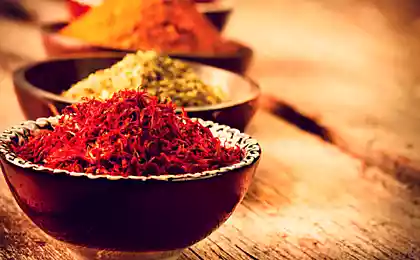164
Herbs for the stomach, improving digestion. You have no idea, most of the herbs are already in the kitchen!
A healthy digestive system is taken for granted until problems arise. This can be bloating, dull stomach pain, or an infection caused by the bacterium Helicobacter pylori, which often causes stomach and duodenal ulcers.

DepositPhotos
Avoid digestive problems will help to exclude spicy and fatty foods from the diet, reduce the use of alcoholic and caffeinated drinks. Your doctor may advise you to take antacid (acid neutralizing) and alginate (enveloping) medications.
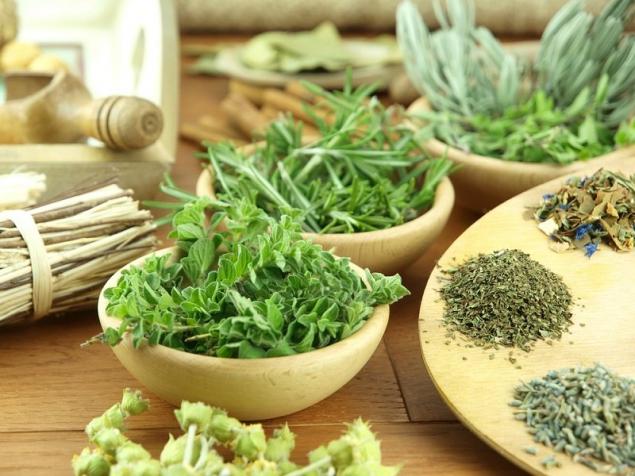
DepositPhotos
But there are funds for which you do not need to run to the pharmacy. They're right next to you in your kitchen. And these are herbs that we used to use only as spices! They are available and popular, they can be safely stored at home and brewed when you feel heaviness, bloating or pain in the stomach.
Spicy herbs, in addition to their aroma and taste, have a number of healing properties. Some have antispasmodic effects and reduce gas formation, while others fight bacteria that cause digestive disorders. They help eliminate nausea, stimulate the process of digestion of food and relieve inflammation.
Interesting fact. In the 1970s, gastritis and stomach ulcers were thought to cause stress and an unbalanced diet. Australian scientist Barry Marshall was convinced that helicobacter pyloriAnd not soda chips, it causes pathology.

DepositPhotos
To prove his point, the scientist, being perfectly healthy, drank a concentrate of culture Helicobacter pylori. Within a few days he had signs of gastritis. For his scientific work on Helicobacter pylori, Marshall and his colleagues received the Nobel Prize in 2005.
Tinctures of flowers, leaves and stems of plants are the healthiest alternative to teas, moreover, more diverse. Try replacing regular tea and coffee with herbal drinks. You will be surprised how quickly this will affect your health, appearance and well-being.

DepositPhotos
Avoid digestive problems will help to exclude spicy and fatty foods from the diet, reduce the use of alcoholic and caffeinated drinks. Your doctor may advise you to take antacid (acid neutralizing) and alginate (enveloping) medications.

DepositPhotos
But there are funds for which you do not need to run to the pharmacy. They're right next to you in your kitchen. And these are herbs that we used to use only as spices! They are available and popular, they can be safely stored at home and brewed when you feel heaviness, bloating or pain in the stomach.
Spicy herbs, in addition to their aroma and taste, have a number of healing properties. Some have antispasmodic effects and reduce gas formation, while others fight bacteria that cause digestive disorders. They help eliminate nausea, stimulate the process of digestion of food and relieve inflammation.
- Melissa.
Melissa, or lemon mint, perfectly helps with bloating and pain that causes indigestion. It also relieves bowel spasms. In addition, Melissa is an effective tool in the fight against the bacterium Helicobacter pylori. Melissa is usually consumed in the form of tea, which is brewed in the following proportion: 2-3 teaspoons of Melissa leaves per glass of boiling water. The stomach will thank you for such a tasty and healthy tea that improves not only digestion, but also mood.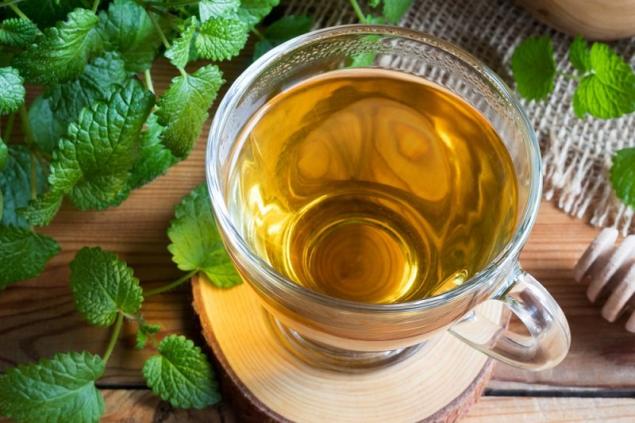
DepositPhotos - rosemary
Rosemary is traditionally used for stomach and bowel problems. It relaxes the smooth muscles of the gastrointestinal tract, that is, it works as an antispasmodic agent. The results of studies suggest that rosemary also effectively fights the bacterium Helicobacter pylori, which causes stomach ulcers and gastritis.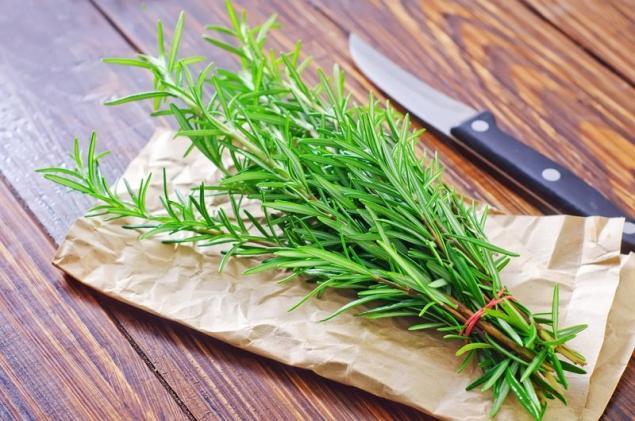
DepositPhotos - Peppermint
Mint stimulates the release of bile, which means it helps digestion. Studies show that it has antibacterial properties. However, with gastroesophageal reflux, mint can do more harm than good. And all because it relaxes the muscles that close the sphincter, as a result of which the acid contents of the stomach enters the esophagus. Also, mint should not be given to children.
DepositPhotos - Cinnamon
The fragrant oriental spice will help to cope with indigestion. Diarrhea is a common companion of food poisoning of moderate severity, and cinnamon oil kills microbes that provoke this trouble. Adhesive substance and tannin contained in the spice, instantly "dry" diarrhea. Do not wait for the right moment, put cinnamon on a shelf with spices right now and add to food for insurance. In addition to the pleasant taste, it will be your protection against poisoning.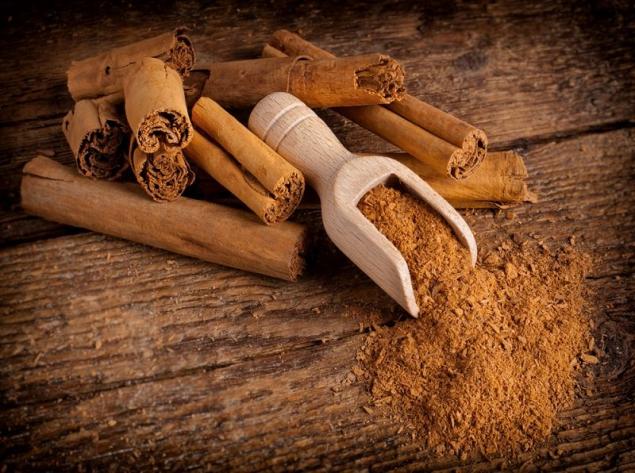
DepositPhotos - Parsley.
Parsley is another herb with antibacterial properties. Studies suggest that parsley extract prevents Helicobacter pylori bacteria from entering the gastrointestinal tract. Drinking parsley tea after eating improves digestion. It also helps to cope with indigestion caused by poisoning.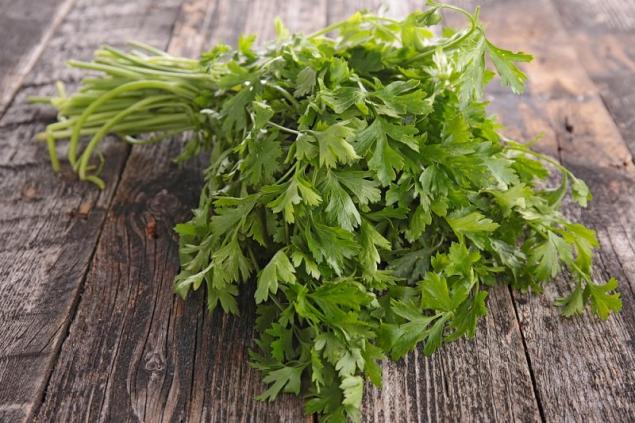
DepositPhotos - Dill
This is an ambulance for discomfort in the abdomen. Dill greens we willingly add to salads and soups, and he in turn facilitates digestion, soothes the stomach, adjusts the intestines, stops rapid gas formation. You can also use dill seeds, which are sold in supermarkets as a culinary seasoning. They make medicinal tea. To do this, half a teaspoon of seeds should be brewed in a glass of boiling water. After that, allow to brew for 5 minutes and strain.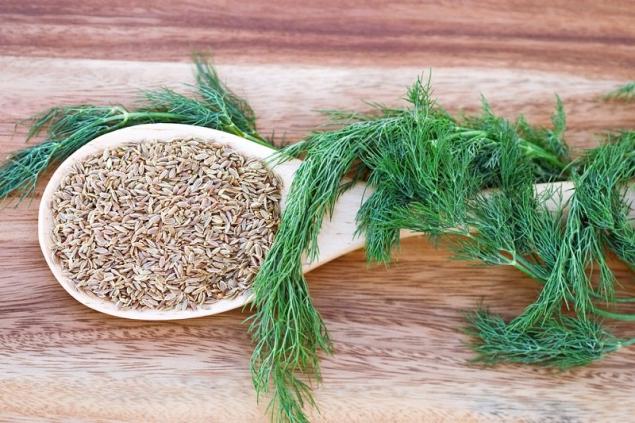
DepositPhotos - Black cumin
Black cumin gives dishes a bitter spicy taste, is used in a hammer and dried form, is part of the seasonings. The seeds are used in sauces, salads, baking and various side dishes. Black cumin seed oil - a unique medicinal product with many useful properties. Its use allows you to strengthen the immune system, normalize blood pressure, improve memory.
Scientists have found that black cumin seeds mixed with natural honey can effectively cure Helicobacter pylori infections. An experiment was conducted in which patients received one teaspoon of the mixture (6 g of crushed black cumin seeds and 12 g of honey) three times a day for two weeks.
After the study, a negative test result for Helicobacter pylori infection was observed in 57% of participants. This is a very good result, considering that antibiotic treatment, of course, gives results, but it threatens with a lot of side effects.
Previously "Site" I have already written about the healing power of black cumin oil. About the useful properties of this plant said Avicenna, Galen and Hippocrates. The Prophet Muhammad mentioned black cumin in many of his teachings, giving very detailed recipes and applications for specific diseases.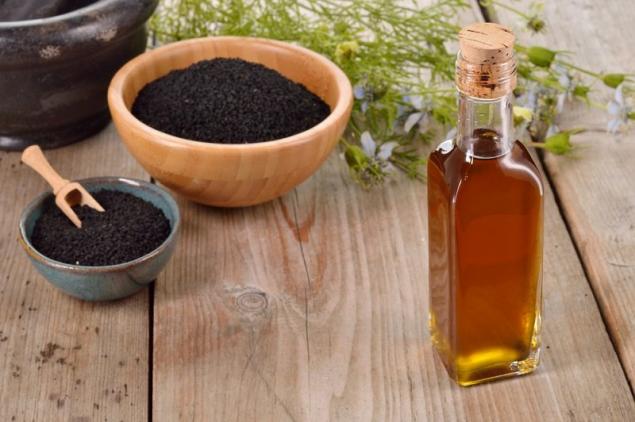
Interesting fact. In the 1970s, gastritis and stomach ulcers were thought to cause stress and an unbalanced diet. Australian scientist Barry Marshall was convinced that helicobacter pyloriAnd not soda chips, it causes pathology.

DepositPhotos
To prove his point, the scientist, being perfectly healthy, drank a concentrate of culture Helicobacter pylori. Within a few days he had signs of gastritis. For his scientific work on Helicobacter pylori, Marshall and his colleagues received the Nobel Prize in 2005.
Tinctures of flowers, leaves and stems of plants are the healthiest alternative to teas, moreover, more diverse. Try replacing regular tea and coffee with herbal drinks. You will be surprised how quickly this will affect your health, appearance and well-being.
Before bed I clean the lymph and in the morning I feel full of strength and desires!
In 2018, these 4 zodiac signs will be the happiest. All the stars are on their side!

























